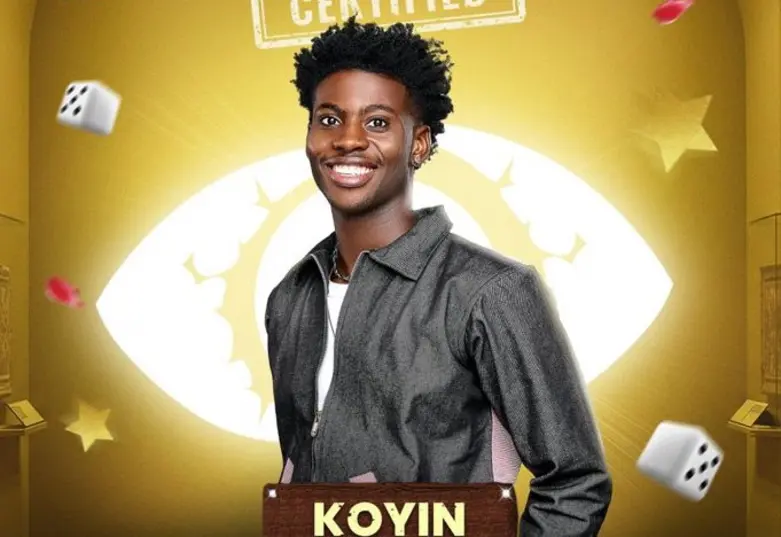A contestant on the ongoing Big Brother Naija reality show has sparked discussions after confessing to misrepresenting his age during the program’s highly publicized premiere. Koyin, one of the housemates in the “10/10” season, revealed to fellow contestant Gigi Jasmine on Friday that he is actually 25 years old, despite initially claiming to be 21. The disclosure came weeks after viewers were led to believe he and another housemate, Joanna, were the youngest participants in the competition.
In a candid conversation aired during the show’s live feed, Koyin attributed the age discrepancy to pressures within his modeling career. “I had to reduce my age because of modeling,” he stated, adding that he hoped the adjustment would extend his perceived viability in the industry. Gigi Jasmine, seemingly unfazed by the admission, praised his candor, remarking, “You have a high level of emotional intelligence, which I appreciate a lot.”
Koyin’s revelation follows a pattern of age-related inconsistencies among contestants this season. Earlier, fellow housemate Ivatar clarified that her claim of being 40 during the premiere was a joke, confirming her actual age as 37. While Ivatar framed her statement as lighthearted, the recurring theme has prompted debates among audiences about authenticity and the pressures faced by public figures in age-sensitive professions.
The Nigerian edition of Big Brother, a cultural phenomenon across Africa, often draws scrutiny over contestants’ personal narratives, with age disputes occasionally surfacing in past seasons. Industry analysts note that modeling and entertainment careers in competitive markets frequently incentivize individuals to present themselves as younger to align with industry standards or audience expectations. However, such revelations risk undermining public trust, particularly in reality TV formats that emphasize interpersonal dynamics and relatability.
While Koyin’s confession has not yet elicited an official response from the show’s producers, social media reactions remain divided. Some viewers have criticized the deception, while others argue that age adjustments in creative fields are commonplace and reflect systemic biases rather than individual dishonesty. The incident underscores broader conversations about transparency in media and the ethical responsibilities of reality TV platforms to vet participant claims.
As the season progresses, audiences remain tuned in to see how these disclosures might influence alliances, strategies, and viewer perceptions within the Big Brother Naija house. The show continues to dominate ratings across the continent, blending entertainment with inadvertent social commentary on the complexities of fame and self-presentation.
